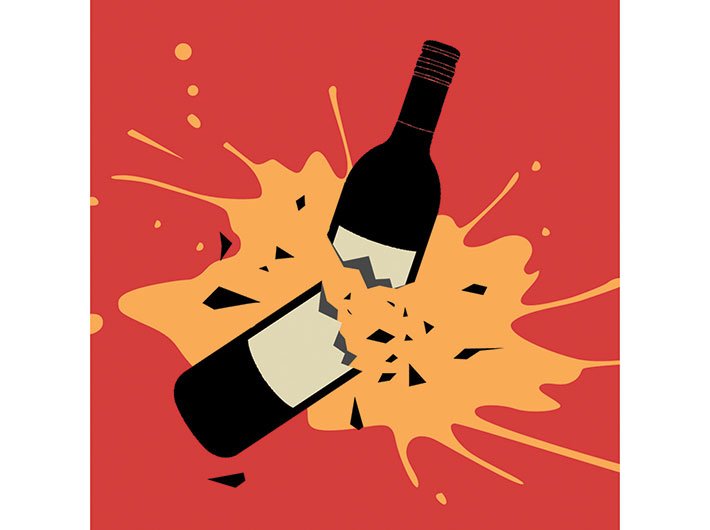Revenues earned from alcohol sales are justified neither morally nor economically given the state spending on health as well as crime control
What would be the one thing you would do if you are prime minister for the time it takes to throw a lemon up in the air and catch it? Mahatma Gandhi’s answer, the anecdote goes, was that he’d ban alcohol. The notion of the whole country quitting on liquor is not as outrageous as it may seem at first blush.
Following Gandhi, one of the directive principles of state policy in the constitution says, “The State shall endeavour to bring about prohibition of the consumption except for medicinal purposes of intoxicating drinks and of drugs which are injurious to health.”
India has a long history of consuming various forms of liquor, but it was the colonial rulers who promoted it solely with an eye on revenue. Today, revenue has become the first line of defence argument against prohibition, without taking its moral price into account. It was during the British Rule that women protested and led temperance movements. In recent times, it is this push from women that has led to prohibition in Bihar. And statistics say crime in general and incidences of violence against women in particular have come down in Bihar since 2016.
Think
Prohibition is advised by a directive principle of state policy, no less
. . .
Revenues earned from alcohol sales are justified neither morally nor economically given the state spending on health as well as crime control
. . .
A countrywide ban is bound to be more effective than state-wide ban
Another argument against prohibition has been that it is never hundred percent effective, and liquor finds its ways to an underground market helped by corrupt officials. In Gujarat, where the ban has been in place since the state was formed in 1960, underground markets are well developed. True, but a big part of the reason is that liquor is officially available in each neighbouring state: what if there was no liquor legally available to divert across the border? Ineffective implementation of prohibition in the few states is actually a strong argument to ban it across the board.
This also means that instead of banning things (alcohol, tobacco, etc.) at the user end, better results can be ensured if things are banned at the manufacturing end. The state cannot ban the consumption on one hand and grant licences to manufactures on the other. Extending that argument, we could ask: is the state not being hypocritical by warning people through public health campaigns about the dangers of alcoholism, smoking, and tobacco consumption while at the same time allowing tobacco and liquor giants to conduct business?
Finally comes the ace-card argument from the liberal camp: the state intervention in private life, be it in the name of morality or national security, is evil. Alcohol is unhealthy, and so is sugar or salt. An adult citizen should have freedom to decide his or her life choices. But it’s a tricky argument: the so-called nanny state has to intervene when the matter (road safety, for example) goes beyond an individual’s life choices – and alcohol abuse is indeed a social matter. The state is also responsible towards young adults. In Gujarat, for a teenager inclined to a ‘rite of passage’ to adulthood, a smoke would be the default choice rather than alcohol.
Reality Check
The directive principles of state policy, unfortunately, are not always practical. Dismantling a thriving industry is next impossible. A ban can unwittingly promote more dangerous moonshine. The state experience has shown that the key to effective implementation is policing, and the police force in India is woefully short on numbers as well as scruples – something the Mahatma had not foreseen.
ashishm@governancenow.com
(This article appears in January 15, 2019 edition)

